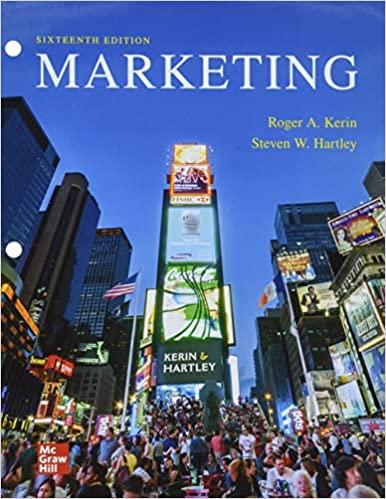As long as theres innovation there is going to be new kinds of chaos, explains Robert Stephens,
Question:
As long as there’s innovation there is going to be new kinds of chaos,” explains Robert Stephens, founder of the technology support company Geek Squad. The chaos Stephens is referring to is the difficulty we have all experienced trying to keep up with the many changes in our environment, particularly those related to computers, technology, software, communication, and entertainment.
Generally, consumers have found it difficult to install, operate, and use many of the electronic products available today. “It takes time to read the manuals,”
Stephens says. “I’m going to save you that time because I stay home on Saturday nights and read them for you!”
THE COMPANY The Geek Squad story begins when Stephens, a native of Chicago, passed up an Art Institute scholarship to pursue a degree in computer science. While Stephens was a computer science student he took a job fixing computers for a research laboratory, and he also started consulting. He could repair televisions, computers, and a variety of other items, although he decided to focus on computers. His experiences as a consultant led him to realize that most people needed help with technology and that they saw value in a service whose employees would show up at a specified time, be friendly, use understandable language, and solve the problem. So, with just $200, Stephens formed Geek Squad in 1994.
Geek Squad set out to provide timely and effective help with all computing needs regardless of the make, model, or place of purchase. Geek Squad employees were called “agents” and wore uniforms consisting of black pants or skirts, black shoes, white shirts, black clip-on ties, a badge, and a black jacket with a Geek Squad logo to create a “humble” attitude that was not threatening to customers. Agents drove black-and-white cars, or Geekmobiles, with a logo on the door, and charged fixed prices for services, regardless of how much time was required to provide the service. The “house call” services ranged from installing networks, to debugging a computer, to setting up an entertainment system, and cost from $100 to $300. “We’re like Dragnet; we show up at people’s homes and help,” Stephens says. “We’re also like Ghostbusters and there’s a pseudogovernment feel to it like Men in Black.” In 2002, Geek Squad was purchased by leading consumer electronics retailer Best Buy for about $3 million.
Best Buy had observed very high return rates for most of its complex products. Shoppers would be excited about new products, purchase them and take them home, get frustrated trying to make them actually work, and then return them to the store demanding a refund. In fact, Best Buy research revealed that consumers were beginning to see service as a critical element of the purchase. The partnership was an excellent match. Best Buy consumers welcomed the help. Stephens became Geek Squad’s chief inspector and a Best Buy vice president and began putting a Geek Squad “precinct” in every Best Buy store, creating some standalone Geek Squad Stores, and providing 24-hour telephone support. There are now more than 20,000 agents in 1,100 Best Buy stores in the United States, Canada, the United Kingdom, and China, and return rates have declined by 25 to 35 percent. Geek Squad service plans, called Geek Squad Protect & Support Plus, provide device setup, operating system and software installation, hardware repair, battery replacement, virus removal, and many other services. The Geek Squad website proclaims, “We’re Here to Help” and “No One Stands Behind You Like Geek Squad.........”
Questions
1. What are the key environmental forces that created an opportunity for Robert Stephens to start the Geek Squad?
2. What changes in the purchasing patterns of:
(a). All consumers and
(b). Women made the acquisition of Geek Squad particularly important for Best Buy?
3.Based on the case information and what you know about consumer electronics, conduct an environmental scan for Geek Squad to identify key trends. For each of the five environmental forces (social, economic, technological, competitive, and regulatory), identify trends likely to influence Geek Squad in the near future.
4. What promotional activities would you recommend encouraging consumers who currently use independent installers to switch to Geek Squad?
Step by Step Answer:






